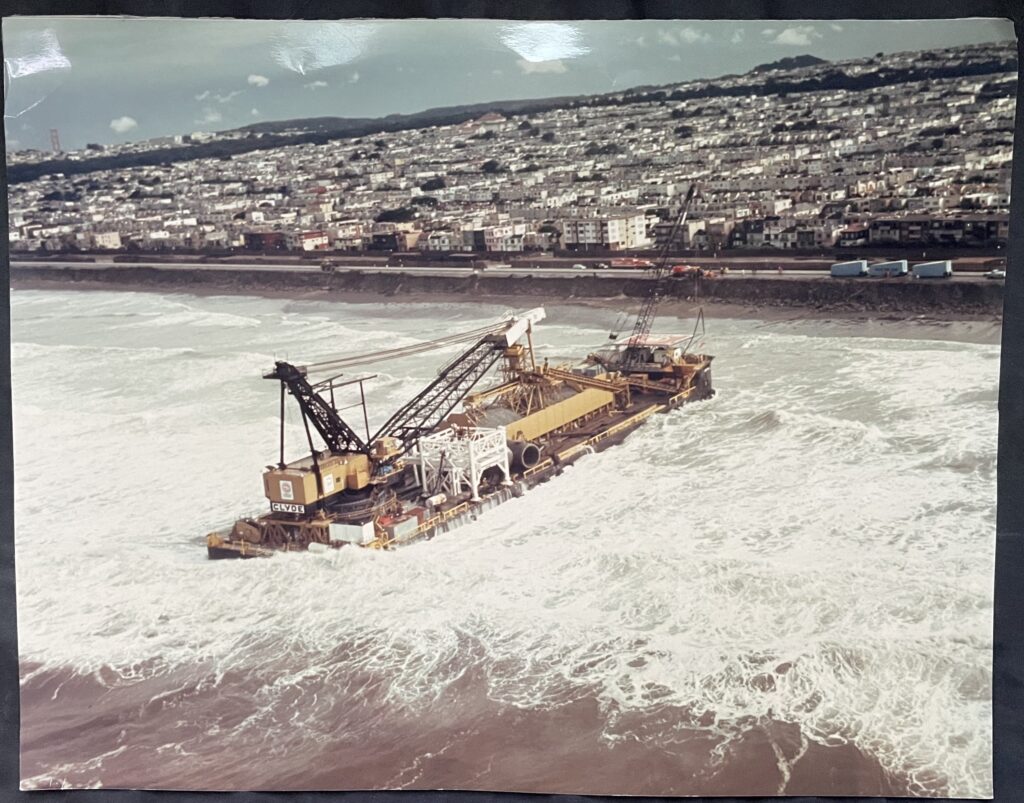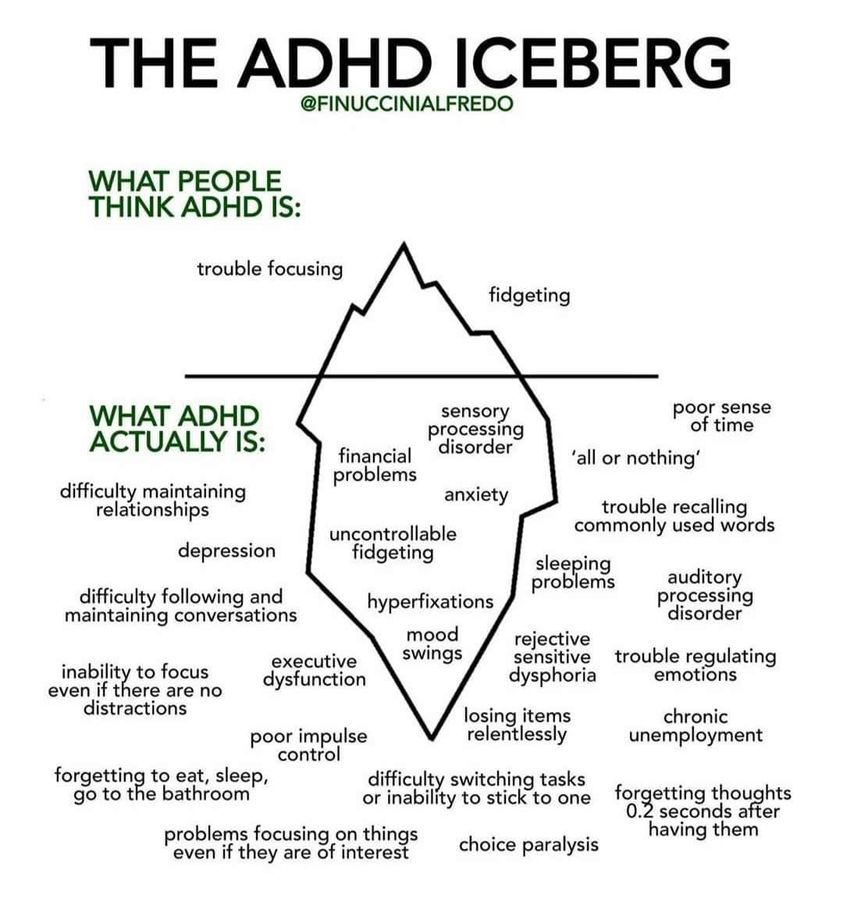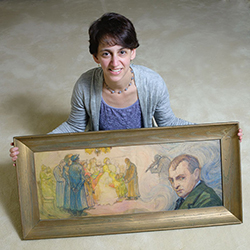-
Chapter 9, Unmoored: The Betty L
This post is about several things. It’s about Parenting an ADHDer. It’s about the life of a writer. It’s about the mantra from Austin Kleon to, show your work. As Kleon writes, “…it’s important to get things in front of other and see how they react.” It is, I confess, a little bit scary to share this. I recorded it a few weeks ago (thank you IMRSV Sound) and I’ve been sitting on it because, well, there are risks to sharing something so personal – you might not like it, you might judge my parenting, my writing, you might think my audio isn’t up to snuff, and you might have opinions about oh so many other things. I’ve been in turmoil for the last few days… post it, don’t post it. There are an equal number of reasons for me to share it and to not share it. But, in the end, living a creative life is about about believing in yourself and taking risks in the hope that a piece of this resonates with you. You can listen (transcript here) to Chapter Nine, Unmoored: The Betty L, here. Scroll down a bit to see the photograph mentioned in the chapter:
About the Project
Shipwrecks defined my father’s career; his long absences to remote salvage jobs shaped my childhood and, ultimately, our relationship. Now in my 50s, I dig through the records of my father’s work in the South China Sea, the Brooklyn Navy Yard, Cape Cod, and San Francisco Bay, to better understand his work and forge a closer bond with him. In the process, I find surprising insights into

my relationship with Owen, my teenage son struggling with ADHD. Offering an unflinching account of my role as a daughter, wife, and mother, I expose my blind spots and share my hard-won insights. Salvaged shows the journey to intergenerational love, understanding, and acceptance through the unique lens of maritime disaster and recovery. Read more about the project here.
-
In the Classroom
On Parenting an ADHDer.
On the positive side of things: My son’s community college professor offered her students the opportunity to share (privately) their learning differences and accommodation needs.
On the wonky side of things: She seems to think the sole trait of an ADHDer is the need to fidget.
I told my kiddo that the professor gets HUGE kudos for having an awareness of neurodivergent learning needs and although she missed the mark on fully understanding the extent of his ADHD struggles, we’ll take it.

-
Transcript
Audio isn’t your thing? You can read the two parts of Chapter 9, Unmoored: The Betty L:
INTRODUCTION:
Hi! I’m Elizabeth Rynecki. The piece you’re about to hear is an excerpt from a not-yet-published book I wrote. It’s not a sequel to my first book, Chasing Portraits, but if you read that book, or saw the documentary, it makes sense to say it’s also strongly tied to my experiences with my family and family history.
I’ve titled this interwoven, narrative non-fiction memoir, Salvaged: A Memoir of Parenting, Shipwrecks, and ADHD. Yes, shipwrecks. Shipwrecks defined my father’s career, and his long absences to remote salvage jobs shaped my childhood and, in many ways, set the stage for my own parenting journey with my now 19-year-old son, Owen.
Diagnosed at 10 with ADHD, Owen struggles with executive function skills and emotional regulation. As he hit his teens, began high school, and stared down Covid – the challenges of navigating his ADHD grew more difficult for all of us. We were not alone in this experience. There is a large and growing sense of frustration and isolation among parents of neurodivergent children who feel unprepared and ill equipped to parent effectively.
This is all to say, Salvaged offers not a guidebook on how to handle ADHD, but a somewhat quirky lived experience of how I learned to understand Owen through the lens of my father’s career.
In this excerpt, Dad and I look at a photo of The Betty L, a construction derrick barge he salvaged from San Francisco’s Ocean Beach in 1983. He tries to teach me to think like a salvage engineer, to understand the importance of making quick assessments and taking preventative action to mitigate worsening circumstances. He’s talking about ship salvage, but it feels to me like he’s talking about my parenting. Dad anchored the Betty L to keep her in place, to prevent a grounding. I am deeply concerned with understanding how I might do something similar for Owen, to help him anchor himself, and prevent him from drifting or crashing into the metaphorical rocks of teenage life. And without further ado, Chapter nine.
Chapter 9: Unmoored
The Betty LDad and I stand in his garage – a pristine two-car garage, with a gray and blue-speckled epoxied floor and heavy-duty storage racks hugging the right wall. We’re looking through some archival boxes he forgot to give me. He opens the lid on one and pulls out an 11 by 14 inch color photograph.
“What do you see?” he asks.
The Golden Gate Bridge is just barely visible in the upper left-hand corner, and the long stretch of the beach along Highway 1 – the Great Highway, the western most reach of San Francisco – crosses the photo horizontally. Two thirds of the photo include ocean waves and the beach. Apartment buildings and single-family houses fill the top third. But the photograph isn’t picturesque, its true subject is a derrick barge, her bow on the beach, her cranes at a standstill, waves pummeling her stern.
“It’s the Betty L,” I say. A 420-foot barge, built especially for a sewer project for the City of San Francisco’s Clean Water Project, she was to lay 4 and a half miles of pipe into the Pacific Ocean. In the spring of 1983, only a week after going into service, fierce winds and waves knocked her from her moorings, leaving her in the position shown in the photograph.
“But what do you see?” he asks.
He hands me the print. Looking for clues, I flip it over. Nothing. Dad’s question makes me feel like I did when I was 13, when this photograph was taken. I look at the white caps of the waves crashing against the sandy beach and barge. I know there’s a problem, but I have no idea what I’m supposed to see.
“What would you do first?” he asks.
“Call you.”
Dad thinks I’m modestly humorous, and gestures to the photo, a case study he hopes will help me finally understand how he worked all those years ago. This, he says about my feeling lost and helpless, is how he arrived at so many job sites over the years. A unique problem with no clues or hints about what to do, how to fix it. Dad waits to see if I come up with something, anything, because to him, what needs to be done is just so damn OBVIOUS.
He gives me a moment, but I’ve nothing to offer.
“I see this and instantly — I mean the first thing I think about — is that if we don’t do something right now, right away, it’s going to broach on the beach. B and B. The barge needs to be stabilized with anchors to prevent it from turning 90 degrees and washing up on the shore. Because if that happens, things are worse, much worse.”
There’s a difference between knowing from actual data that things have the potential to get worse and catastrophizing about worst case scenarios. While Dad spent a lifetime thinking about how to prevent bad shipwrecks from turning into horrific or worse, unsalvageable ones, my husband Steve thinks I spend too much time thinking about what might happen to Owen (our 18 year old son) if I don’t do something now, right away. My fixation on Owen’s potential trajectory, where he could be in ten years, bothers Steve. He’d rather we focus our energies on the here and now. In his mind, that gives us a better chance at that positive future trajectory.
I think about the Betty L perpendicular to the beach – in trouble, but knowing that anchored in place, stabilized, things are unlikely to get worse. We can’t anchor Owen but Steve’s desperately hoping to stabilize him as much as we can, to buy him extra time (allowing his brain the best chance it has to finish development), to help him overcome or outlast the emotional anguish of teenage hormones, the distress of depression, and the added emotional challenge of social isolation and regression caused by the Covid pandemic. “Keep ‘em alive until 25,” a fellow mother of an ADHD kid told me. While I feel like we’re running out of runway, Steve’s working feverishly to extend the one we have.
Steve and I go round and round on the idea of giving Owen time and space to mature. We both agree on the big picture – helping Owen to succeed, find happiness, and to launch into the world – but often disagree on how (and maybe more importantly – WHEN) we might get there. The latest squabble – Owen might not graduate from high school on time – has us bickering about how to handle his growing list of failed tests, incomplete assignments, and reluctance to track and turn in extra credit projects. Some items – documenting workouts for P.E. credits – seem like low hanging fruit. I don’t understand why neither Owen nor Steve records the information to pass along to the school. It’s become a contentious point of our daily interactions.
Madeline, my therapist, lets me vocalize my angst, chiming in that she understands my perspective. “I feel for you,” she says before asking, “What if Owen didn’t finish high school this year?”
I sigh. While maybe an additional year of high school wouldn’t be so bad, his school (in part because of his relentlessly negative attitude, in part because he really is close to graduating) won’t let him stay. Transferring would mean tackling a new set of requirements, and I tense up over the resistance that will create. Steve and I are both emotionally resilient, so maybe we could weather the storm of a fifth year of high school. But Owen’s negative outlook colors the world a toxic hue which makes the option less appealing.
“I don’t know what story he tells himself,” I tell Madeline. “But he’s spinning his wheels in a very negative space.” She nods and takes notes. I wonder what she writes, but don’t ask. Instead, I start taking my own.
Sometimes it feels weird that Madeline knows so much about my family and inner life. She knows more about me than my closest friends and I have only the vaguest notions about her. I know she has a spouse, once worked as a waitress, has a daughter, and a cat (maybe two). I know that one time she locked herself out of her office, scaled a wall, and climbed through a window to make our Zoom appointment. I got angry at her that day. Not because of her Spiderman-like heroics – that I appreciated – but because she got mad when I told her we’d taken Owen off his antidepressant. I’ll never forget her horrified and judgmental, “WHY?” My throat tightened and the color drained from my face. I hadn’t said we’d taken a hiatus because of our concern the medication made him more suicidal, just that he needed a break. I felt rotten to the core and grossly misunderstood because although Owen’s depression isn’t my fault, stopping the medication was. Her reaction told me everything I needed to know. I might win the bad mother of the year award.
“You know,” Dad said, putting the Betty L photograph back in its box, “Charles Kettering once said: A problem well stated is half solved.” Dad’s talking about ship salvage, but what I hear is that if I could clearly diagnose Owen’s problems, I could solve them.
Dad never gives me advice about Owen, but he worries about Owen, about me, about how the whole situation impacts my marriage. “It could destroy you,” he’s said on more than one occasion. Mostly he says it because he has friends whose troublesome children sped up the decline, and ultimate end, of their marriages. I know Dad and I are each concerned about protecting our children, but the idea that Owen might destroy my marriage feels like Dad has pushed his concern a bit too far.
Sometimes I push back and ask him to stop using that phrase. Other times I try to explain Owen to him. I share parenting and conflict resolution books, news stories about teenage depression, evidence that it spiked during the pandemic, and videos offering insights into the ADHD brain. I’m grateful for the days he seems to understand Owen is hardwired differently, but frustrated when he suggests that maybe, one day, Owen will just snap out of it. No one expects a ship to magically right itself, refloat from the bottom of the ocean without any help at all, so I’m unclear why Dad expects that Owen might be able to resolve his issues on his own.
“Owen’s problems are not because of anything you did or did not do,” Madeline says.
I shrug. I want to believe her, but I’m his mom and my instinct is to blame myself.
The CDC doesn’t exactly know what causes ADHD. Scientists know it’s one of the most common neurodevelopmental disorders of childhood and that it can last well into adulthood. Steve and I have long speculated that in Owen’s case it may have been caused (or at least exacerbated by) a combination of factors. Genetics is certainly a part of it – Steve has trouble with some of the same issues Owen has with eye contact, fidgeting, and difficulty in starting undesirable tasks. I have other issues, especially sensorial ones. (I cut tags out of my clothes). On top of that are potential impacts of epigenetics (the fact that Dad is a Holocaust survivor, which makes Owen the grandson of a survivor). And Steve’s family has intergenerational abuse and trauma of its own. Finally, there is the fact that Owen was exposed to cytomegalovirus (CMV) in the womb. Most children and adults who contract CMV (and almost everyone has been exposed) don’t experience any symptoms. Few even know they’ve been infected with the virus. But prenatal exposure to CMV is the leading cause of infant deafness and linked to blindness, autism, cerebral palsy, and ADHD, as well as other developmental issues. Although it’s not clear if Owen’s ADHD was linked to the CMV, Owen had extraordinarily high levels of bilirubin when he was a few days old, and was hospitalized for jaundice. Otherwise, he was healthy and showed no potential impacts until he had behavior issues in pre-school.
I keep wondering if I hadn’t contracted CMV, would Owen still have ADHD? Or was it already likely with the combination of genes and epigenetics that Steve and I bring to the table? Worrying that one way or another I caused this problem and now needed to fix it, I struggled to sit on the sidelines and simply wait and hope for change. Owen’s therapist, Steve, and Madeline (my therapist) all say my problem-solving instincts are good, that Owen benefits from my unwavering commitment to helping him, but that he needs more time.
Madeline frequently tells me that “Owen is lucky to have incredibly loving parents, a supportive home environment, and a good therapist.” And then always adds: “But sometimes you need to give yourself a break. Thinking about it all the time doesn’t help anyone.”
On the weeks in between my sessions with Madeline, Steve echoes her reminder with his own refrain: Patience is a virtue. “I’m not particularly virtuous,” I tell him. Besides, if things aren’t working, change is surely better. Owen never directly says he wishes I’d back off, but I know he doesn’t always like or appreciate my problem-solving tendencies.
Maybe it’s all the exposure to Dad’s ship salvage jobs, but I know problems don’t get better on their own. They get harder. Perhaps most cruelly of all, if you don’t make the change yourself, life will do it for you.
As for the Betty L, the anchors kept her in place, which prevented a more catastrophic grounding. Dad refloated her after offloading 140,000 gallons of diesel fuel and positioning tugs to pull her off the beach at high tide. The whole job took a little less than two weeks. In comparison to so many of his other jobs, it was easy.
“I can’t solve Owen’s problems in two years, much less two weeks” I tell Madeline.
“Maybe,” she offers, “you’re not supposed to.”

Elizabeth Rynecki is an author and documentary filmmaker. Her first book, Chasing Portraits: A Great-Granddaughter’s Quest for Her Lost Art Legacy was published by NAL/Penguin Random House in 2016. Her documentary of the same name is distributed by First Run Features in New York. This blog shares her experiences about parenting her son who has ADHD.
Elizabeth has a BA in Rhetoric from Bates College (’91) and an MA in Rhetoric and Communication from UC Davis (’94). She lives in Oakland with her husband, two sons, and three black cats.